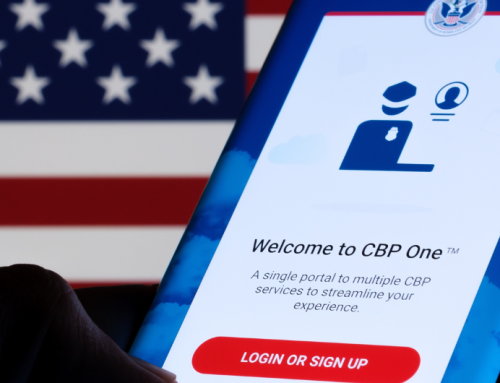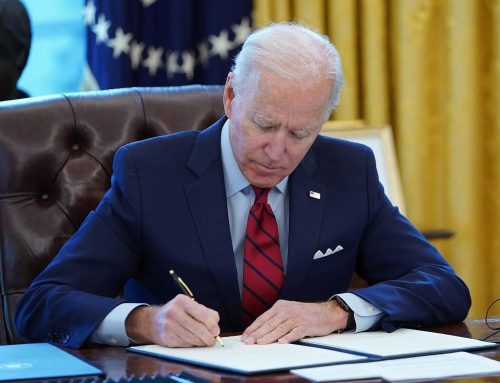
Deportations Increase on US-Mexican Border as Title 42 Gives Way to Title 8.
On May 11, the US will cancel Title 42, a policy that allows immigration authorities to expel undocumented immigrants at the border. A surge of immigrants is expected to gather at the Mexican border, seeking to enter the United States. The Biden administration is concerned about how to address the immigration crisis as the influx of refugees is already reaching record levels. The Title 42 or “Public Health Order” was implemented during the pandemic’s peak in March 2020. Under this rule, border agents could immediately deport immigrants to Mexico. It has been used 2.7 million times over the past three years.
According to estimates from US immigration authorities, the number of arriving immigrants may increase to 10,000-13,000 per day from the current 5,000-8,000 along the entire US-Mexico border starting in May. To manage the flow of immigrants at the US-Mexico border, the Biden administration is opening immigration processing centers in Latin America. These centers will be staffed by US consulate employees who will interview applicants to determine if they have legitimate grounds to enter the United States. The first centers will be established in Colombia and Guatemala, allowing immigrants experiencing difficulties with the CBP One mobile application to access legal pathways to the US, such as refugee resettlement programs, humanitarian parole, family reunification, or employment-based immigration. The new regional centers are expected to process 5,000 to 6,000 cases monthly. Whether these efforts will effectively slow down the migration flow driven by economic and political reasons in their home countries is yet to be seen.
The Department of Homeland Security (DHS) will also review the conditions for granting humanitarian parole for family reunification for Salvadorans, Guatemalans, Colombians, and Hondurans. The family reunification rules for Cubans and Haitians will remain in effect. US officials have stated that everyone will be screened in these centers, and only those with approved family petitions can enter the United States.
Another way to slow the immigrants’ flow is using the CBP One mobile application, launched in January. It allows immigrants in central and northern Mexico to schedule appointments with Border Patrol officers instead of attempting to cross the border illegally.
Additionally, the US has been actively using Title 8, a federal code related to immigration, as an alternative to Title 42. Individuals who arrive at the border without documents or attempt to enter between ports of entry can be swiftly deported without their cases being reviewed by an immigration court under Title 8. Instead of Title 42, Title 8 is now being used more frequently to promptly send those deemed inadmissible from the United States back to their home countries. In March, the use of Title 8 for deportations increased by 37%. If in February, 55,902 people were expelled under this provision, in March, the number rose to 76,851. During the first six months of the 2023 fiscal year (October to March), US officers expelled over a million undocumented immigrants directly at the border. Of these, 636,000 have been deemed inadmissible under Title 8, one and a half times more than the 420,000 deportations under Title 42. National security officials plan to deport more undocumented immigrants based on Title 8 after canceling Title 42.
It is important to note that the “expedited removal” under Title 8 only applies to those who illegally cross the border, not those who utilize the CBP One application. Using Title 8 for undocumented immigrants carries more severe consequences, including a minimum five-year ban on re-entry and potential criminal prosecution for repeated attempts to illegally cross the border. However, if an immigrant seeks asylum, an officer will interview them. Refugees will have access to legal representation. The interview about credible fear serves as an initial assessment where immigrants must demonstrate a significant likelihood of becoming victims of persecution or show a well-founded fear of persecution in their home country. Families will not be detained or expedited for deportation.
It’s worth noting that the statistical data indicates that almost 70% of immigrants apprehended at the southwest border in March were single adults. The US Border Patrol report also highlights a 23% decrease in overall immigrant apprehensions nationwide compared to March of the previous year but a 25% increase compared to February. This is because more asylum seekers attempt to cross the border during the warmer spring weather rather than during winter.
The ongoing efforts to manage immigration include the establishment of regional immigration processing centers, the use of the CBP One application for scheduling appointments, and the increased utilization of Title 8 for deportations. The Biden administration aims to address the immigration crisis by implementing these measures while ensuring that individuals with legitimate grounds for seeking entry to the United States have the opportunity to go through appropriate legal processes.





